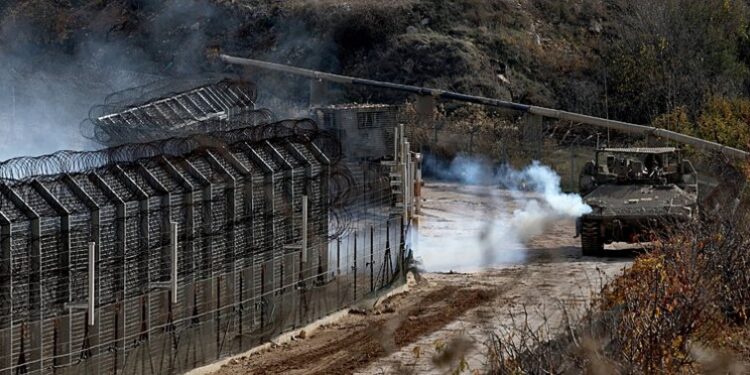Israel has seized 40 Percent of Syrian Water underscoring the geopolitical significance of water in the Middle East.
Water Seizure Intensifies Regional Tensions
The Israeli occupation’s control over vital water resources in the Yarmouk River Basin, including the strategic Al-Wahda Dam, has deepened tensions in the region. Recent reports reveal that Tel Aviv now controls 40% of water resources shared by Syria and Jordan. This move is part of Israel’s broader expansion in Syrian territories, sparking condemnation from Damascus and Amman alike. The seizure underscores the geopolitical significance of water in the Middle East, where resource scarcity often fuels conflict.
The Strategic Importance of the Al-Wahda Dam
Built as a symbol of cooperation between Jordan and Syria, the Al-Wahda Dam was intended to provide water for irrigation and electricity generation in the region. Its seizure by Israeli forces not only disrupts these plans but also heightens water insecurity for millions. Control of the dam gives Israel significant leverage over both nations, exacerbating existing power imbalances and threatening regional stability. Water, already a contentious issue, is now at the center of geopolitical disputes involving land and sovereignty.
A Broader Strategy of Resource Domination
Israel’s control over 40% of Syrian and Jordanian water resources fits into a larger strategy of resource domination. By targeting critical infrastructures like dams and water basins, Israel strengthens its strategic position while weakening its neighbors. Critics argue that these actions violate international law and deepen humanitarian crises in affected areas. The move comes amid Israel’s ongoing territorial expansion, with many accusing it of weaponizing water to assert dominance over regional adversaries.
Humanitarian and Environmental Consequences
The occupation of water resources has dire humanitarian and environmental implications. Communities relying on the Yarmouk River Basin face dwindling supplies for drinking, agriculture, and daily needs. This exacerbates existing challenges in a region already grappling with climate change and water scarcity. The environmental impact is equally severe, as reduced water flow threatens ecosystems and biodiversity. Activists and humanitarian organizations have called for immediate international intervention to address these critical challenges.
Calls for Accountability and Justice
The international community is increasingly scrutinizing Israel’s actions in Syria, with calls for accountability under international law. Water, recognized as a fundamental human right, should not be weaponized in conflicts, critics argue. Israel has seized 40 Percent of Syrian Water urging global powers to condemn Israel’s actions and pressure Tel Aviv to relinquish control over the Al-Wahda Dam. As the situation unfolds, the broader implications for remain at the forefront of international concern.
Related Posts
















